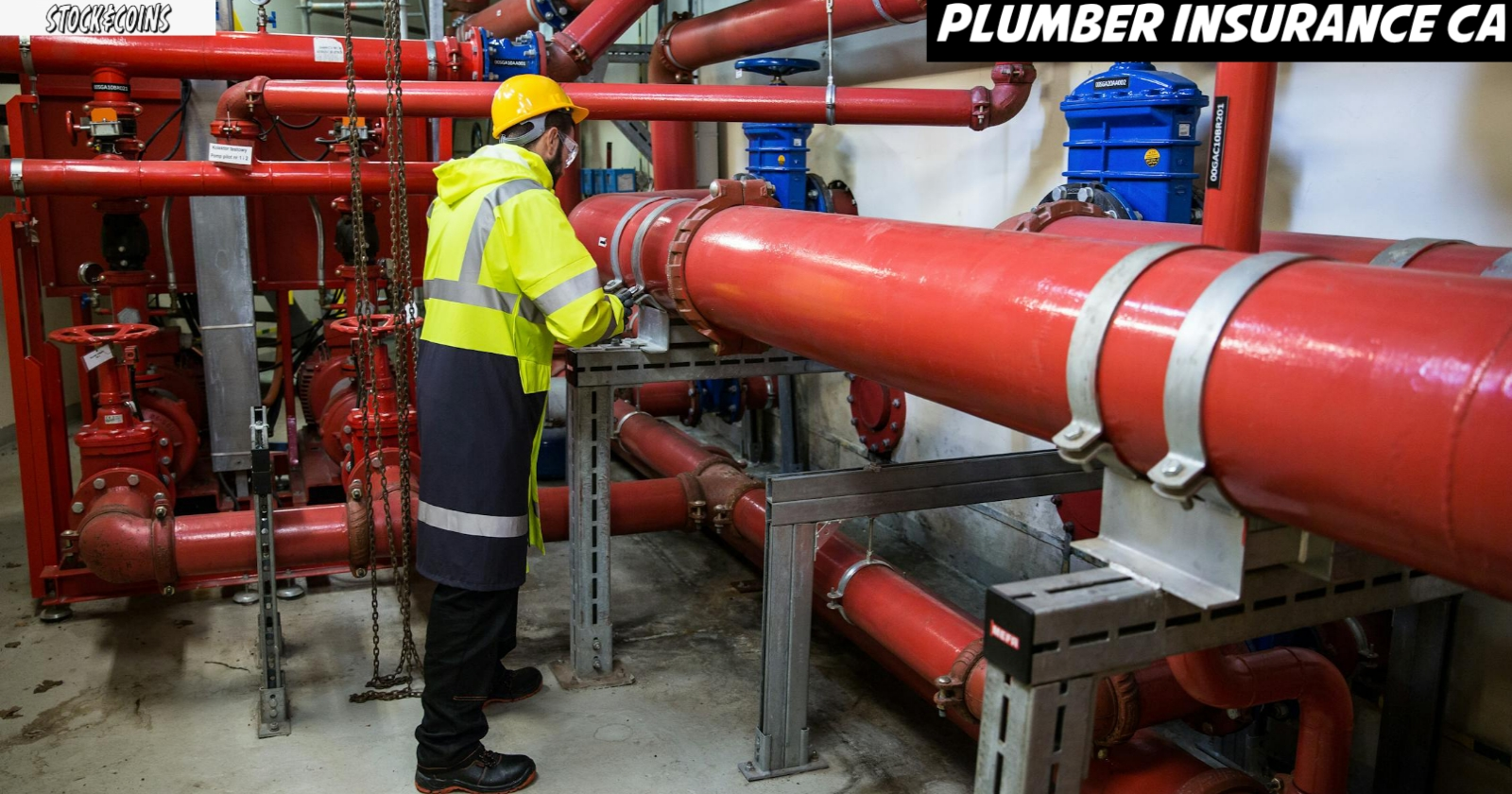A Complete Guide to Plumber Insurance in California (Plumber Insurance CA)
As a plumbing contractor in California, protecting your business is essential. From unexpected accidents on the job to expensive equipment malfunctions, having the right insurance coverage ensures you’re prepared for anything. I’ve worked in this industry long enough to know that insurance is a vital safety net that every plumber needs, especially in California. This article will help you understand the ins and outs of plumber insurance CA, covering the different types of insurance, how to choose the right policy, the cost factors involved, legal requirements, and more.
Let’s dive into each of these topics to make sure you, as a plumbing business owner, are well-informed about your insurance options.
Types of Insurance Coverage for Plumbing Contractors in California
Insurance isn’t just a formality; it’s a safeguard for your business against costly accidents or claims that could otherwise sink your operations. As a plumber, several types of insurance are essential in California.
General Liability Insurance
This is probably the most critical insurance for plumbers. General liability covers third-party claims, such as when you accidentally damage a customer’s property or if a client gets injured while you’re working on their premises. For instance, imagine you’re installing new pipes, and a water leak damages the walls of a client’s home. General Liability will cover the repair costs, saving you from a financial nightmare.
Workers’ Compensation Insurance
If you have employees, California law mandates that you carry Workers’ Compensation Insurance. This coverage provides medical care and wage replacement for employees injured on the job. Even if you’re a solo operator, I highly recommend getting this coverage—plumbing can be risky, and injuries happen.
Commercial Auto Insurance
Most plumbing jobs require travel, whether to a residential property or a commercial building. If your business owns vehicles, commercial auto insurance is a must. This covers accidents and damage to your work vehicle, as well as the tools and equipment you’re transporting. I can’t count the number of times I’ve seen a plumber’s truck damaged, and without the right insurance, they faced significant out-of-pocket costs.
Equipment Breakdown Insurance
Your tools and equipment are the backbone of your plumbing business. From wrenches to high-tech diagnostic equipment, these tools can be expensive to replace if they break down or are stolen. Equipment Breakdown Insurance covers the costs of repair or replacement, ensuring your business doesn’t grind to a halt. As someone who’s had a few tools go missing from a job site, I can tell you this coverage is invaluable.
Professional Liability Insurance
Also known as Errors & Omissions Insurance, this coverage is crucial if your work or advice leads to a client experiencing a financial loss. For example, if you install a plumbing system incorrectly and the client suffers water damage, this insurance covers the legal fees and settlements.
Commercial Property Insurance
If you own or rent a building for your business operations, commercial property insurance protects that property from fire, theft, and vandalism. It also covers your business equipment, furniture, and inventory. This coverage is essential for those who operate from an office or warehouse.
These types of insurance provide comprehensive protection for your business, ensuring you’re prepared for any situation that might arise.
How to Choose the Right Plumbing Insurance in California
Choosing the right insurance for your plumbing business in California can feel overwhelming. When I first started out, I struggled to understand what types of coverage I needed and how to choose a policy that suited my business. Here’s a guide to help you make an informed decision.
Assess Your Business Needs
Start by evaluating the size of your business, the scope of work you handle, and the risks involved. Are you a solo operator, or do you have employees? Do you drive a company vehicle or use expensive equipment? Answering these questions will help you identify what types of insurance you need.
Understand the risks
Every plumbing business faces different risks. For example, if you’re primarily working in residential homes, your liability concerns will differ from someone working on large commercial projects. General Liability and Workers’ Compensation should be at the top of your list, as these cover the most common risks associated with plumbing work.
Compare Insurance Quotes
It’s essential to get quotes from multiple insurance providers. Each company calculates premiums differently, and you’ll want to compare them side by side. When I was first shopping for insurance, I found it helpful to look at the coverage limits, deductibles, and premiums from at least three providers to ensure I was getting the best deal.
Check for industry-specific policies.
Some insurers offer tailored policies for plumbers that combine several types of coverage into one package. This can save you money and ensure you’re covered from all angles. For example, you might find a policy that bundles general liability, commercial auto, and equipment breakdown insurance at a discounted rate.
Evaluate Your Budget
Balancing your budget with your coverage needs can be tricky. A higher premium may offer better coverage, but it’s essential to ensure the policy fits within your financial plan. Remember, cutting corners on insurance can cost you in the long run if you’re faced with a claim.
Consult an insurance professional.
When in doubt, don’t hesitate to consult an insurance broker who specializes in contractor policies. They can help you navigate the complexities of insurance and find the right coverage for your business. In my experience, this step saved me a lot of headaches and ensured that my business was properly protected.
Cost Factors for Plumbing Insurance in California
Several factors affect the cost of plumber insurance CA, and understanding these can help you better estimate your expenses.
Business Size and Revenue
The size of your business and its annual revenue play a significant role in determining your insurance premiums. Larger businesses with more employees and higher income will typically pay more.
Location
Your business’s location also impacts the cost of insurance. For instance, plumbing businesses in urban areas like Los Angeles or San Francisco might face higher premiums due to the increased risk of accidents or property damage.
Claims History
If your business has filed multiple claims in the past, insurers might see you as a higher risk, resulting in higher premiums. Keeping a clean claims record can help reduce your costs over time.
Payroll and Employees
The number of employees you have also factors into the cost, especially for Workers’ Compensation Insurance. The higher your payroll, the higher your premiums will be.
Legal Requirements for Plumbing Insurance in California
In California, certain types of insurance are required by law for plumbing contractors. Failing to meet these requirements can result in severe penalties, including fines and business closure.
Workers’ Compensation Insurance
California law mandates that all businesses with employees must carry workers’ compensation insurance. This policy covers employees who are injured or become ill as a result of their job. Not having this coverage can lead to penalties and even lawsuits from injured workers.
General Liability Insurance
While not legally required, general liability insurance is often necessary to win contracts, particularly for commercial or larger residential projects. Most clients, especially in the commercial sector, will demand proof of insurance before allowing you to start work.
License and Insurance Requirements
To operate as a plumbing contractor in California, you must have a contractor’s license, and part of that licensing process includes proving that you carry sufficient insurance coverage. Without the proper insurance, you could lose your license, which would prevent you from legally working in the state.
Common Insurance Claims in the Plumbing Industry
Plumbing contractors frequently face insurance claims, and understanding the most common ones can help you prepare.
Property Damage
Accidental damage to a client’s property is one of the most common claims plumbers face. This might include water damage from a burst pipe or damage to walls during installations. General Liability Insurance covers these incidents.
Employee Injuries
Workers in the plumbing industry often face hazards that can lead to injuries. Workers’ Compensation Insurance is essential in covering medical costs and lost wages for employees who are hurt on the job.
Equipment Breakdown
Plumbing equipment is expensive and prone to breakdowns. Equipment Breakdown Insurance covers the repair or replacement of tools that are essential to your work.
How to Lower Plumbing Insurance Premiums in California
Here are some strategies to lower your insurance costs without sacrificing coverage:
Maintain a Clean Claims Record
Insurance companies reward businesses with few or no claims by offering lower premiums. Avoid filing claims for small incidents and resolve minor issues internally when possible.
Improve safety practices
Implementing strong safety protocols in your workplace and job sites can help reduce accidents, which in turn keeps your insurance costs down. Regular safety training for employees is a great way to minimize risk.
Increase Deductibles
Raising your deductible can lower your monthly premium. However, make sure you can afford to pay the higher deductible in case of a claim.
Bundle Insurance Policies
Some insurance companies offer discounts if you bundle multiple policies, such as general liability and commercial auto. This can be an excellent way to save money while still having comprehensive coverage.
Conclusion
In conclusion, having the right plumber insurance CA is essential for protecting your business, employees, and clients. Whether you’re a solo plumber or run a larger company, understanding the various types of coverage and legal requirements will ensure you’re fully protected.
Taking the time to assess your risks, compare quotes, and choose the right insurance policies can save you from financial disaster. Remember, it’s not just about meeting legal requirements—it’s about safeguarding the future of your business.
FAQs
1. Do plumbers in California need insurance?
> Yes, plumbing contractors in California need insurance to protect their business from financial risks, comply with legal requirements, and maintain their contractor’s license.
2. What is the most important type of insurance for plumbers?
> General Liability Insurance and Workers’ Compensation Insurance are the most crucial coverages for plumbers. They protect against property damage, bodily injury, and employee injuries.
3. Is workers’ compensation insurance mandatory in California?
> Yes, if you have employees, workers’ compensation insurance is required by law in California.
4. How can I reduce my plumbing insurance costs?
> Maintaining a clean claims record, improving job site safety, and bundling policies can help lower your insurance premiums.
5. What is covered under Commercial Auto Insurance for plumbers?
> Commercial auto insurance covers damages, accidents, and theft of business vehicles used to transport tools and equipment to job sites.
6. Can I operate without insurance in California?
> No, operating without the necessary insurance can result in fines, penalties, and even the loss of your contractor’s license.
7. Does equipment breakdown insurance cover tool theft?
> Yes, Equipment Breakdown Insurance typically covers theft and vandalism of tools and equipment.
8. How do I file a plumbing insurance claim?
> To file a claim, contact your insurance provider immediately, document the incident, and provide all necessary details, including receipts and photos of the damage.
9. Is insurance more expensive in large cities like Los Angeles?
> Yes, insurance premiums tend to be higher in urban areas due to increased risks of property damage and theft.
10. What happens if I don’t have insurance for my plumbing business?
> Without insurance, you expose yourself to financial risks, legal penalties, and potential business closure.




